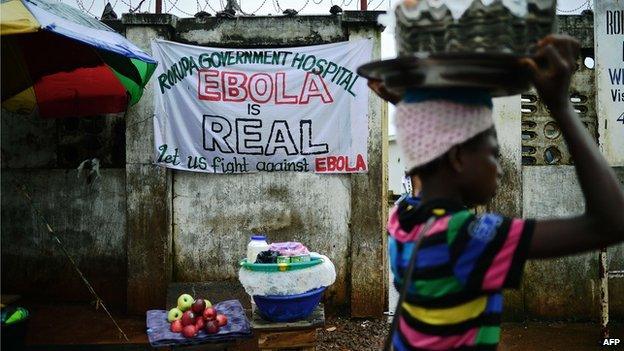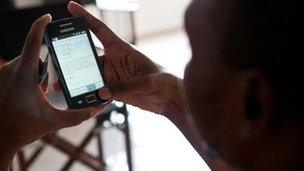BBC launches WhatsApp Ebola service
- Published

Sierra Leone's health services were neglected because of conflict
The BBC has launched an Ebola public health information service on WhatsApp, aimed at users of the service in West Africa.
The service will provide audio, text message alerts and images to help people get the latest public health information to combat the spread of Ebola in the region.
Content will be limited to three items a day, and the service will be in English and French.
To subscribe, send 'JOIN' via WhatsApp to +44 7702 348 651 (you need to save this number in your phone's contacts first)
To unsubscribe, send 'STOP' via WhatsApp to the same number.
Subscribers shouldn't put themselves in potential danger or risk exposure to Ebola by attempting to take audio, pictures or video and sending it to the BBC via WhatsApp.
Due to the volume of requests, it may take a little time to be added or removed from the service.
As the biggest "chat app" in use in Africa, the platform is being used as a means of reaching people in the region directly through their mobile phones.
Users can also access Ebola public health information in audio form via the MXIT app, external. Users in West Africa will find it on the home page of the app when downloaded. The app is available on a range of devices, including smartphones and feature phones.
The response to Ebola is now the BBC World Service's biggest health information drive since its reporting on HIV/Aids in the 1980s and 1990s. In addition to the WhatsApp service, the BBC is offering a range of content on radio, online and TV, including special Ebola bulletins in several languages.
The latest Ebola stories will also be covered on the BBC social media accounts listed below:

Use WhatsApp to receive BBC health information updates on Ebola
On Twitter:
On Facebook:
facebook.com/bbcafrica, external
facebook.com/bbcafrique, external
You can also get the latest coverage of the Ebola crisis by clicking on our special index on the BBC News website, bbc.com/ebola.
At no time should you endanger yourself or others, take any unnecessary risks or infringe any laws.